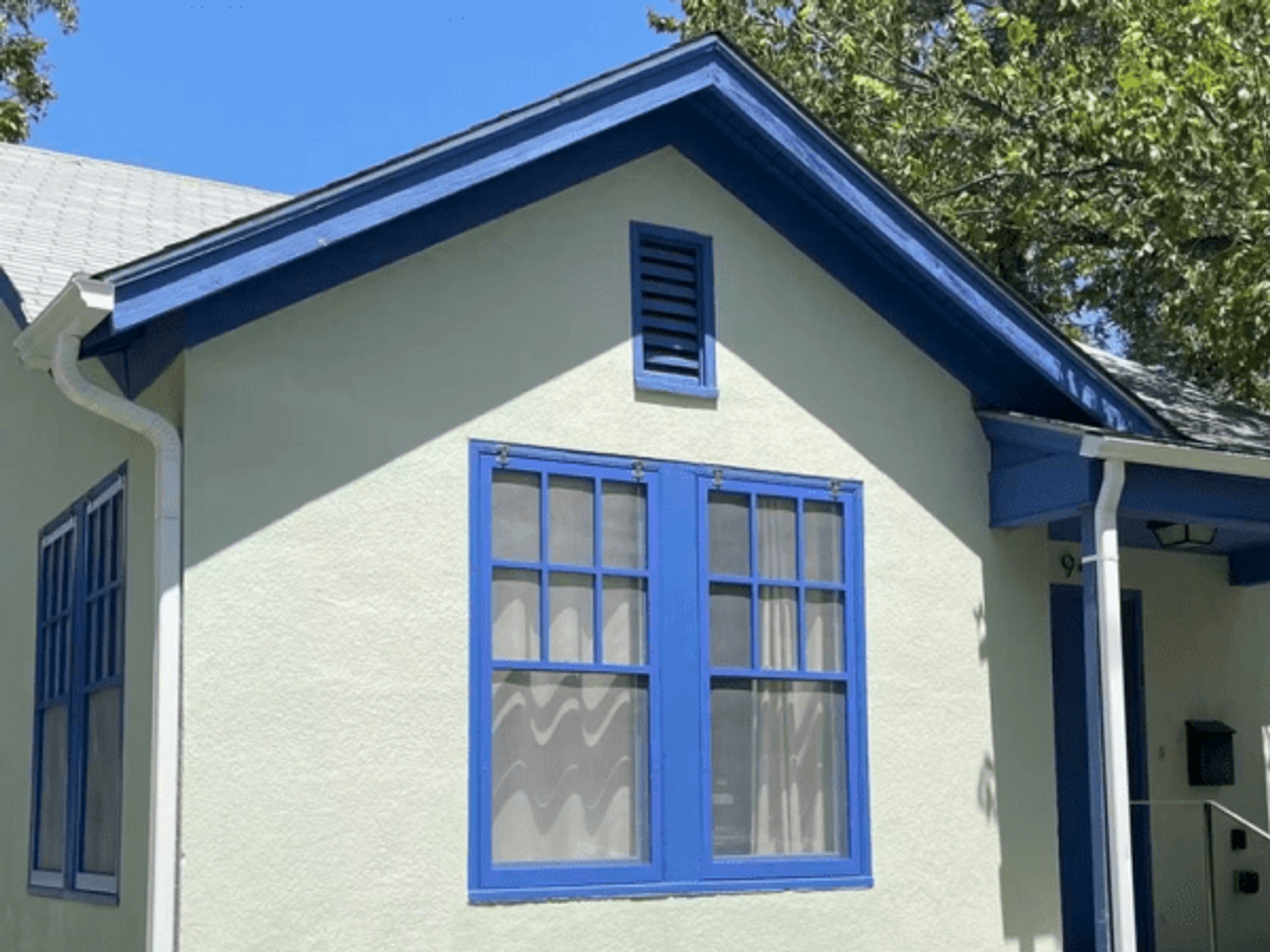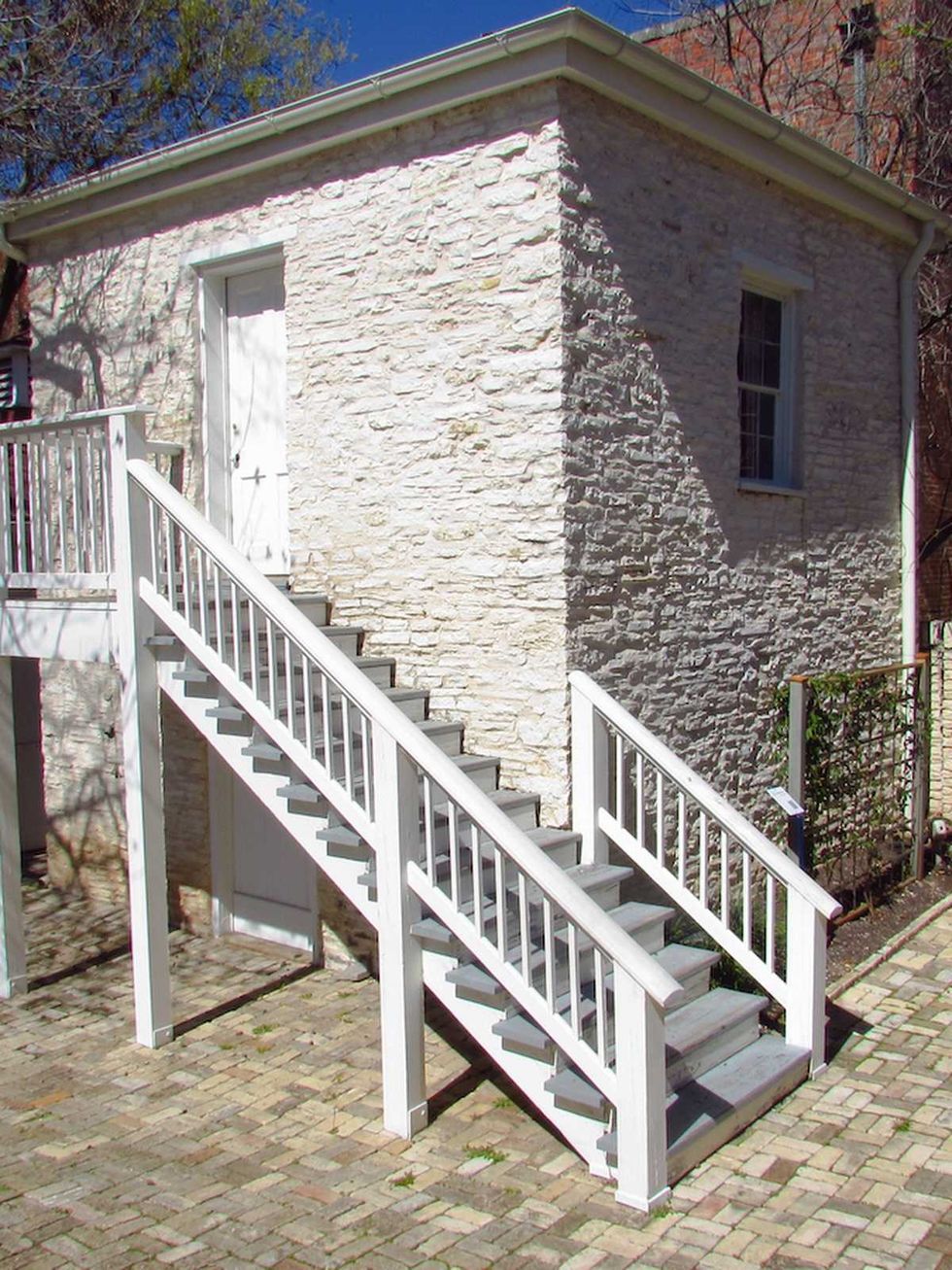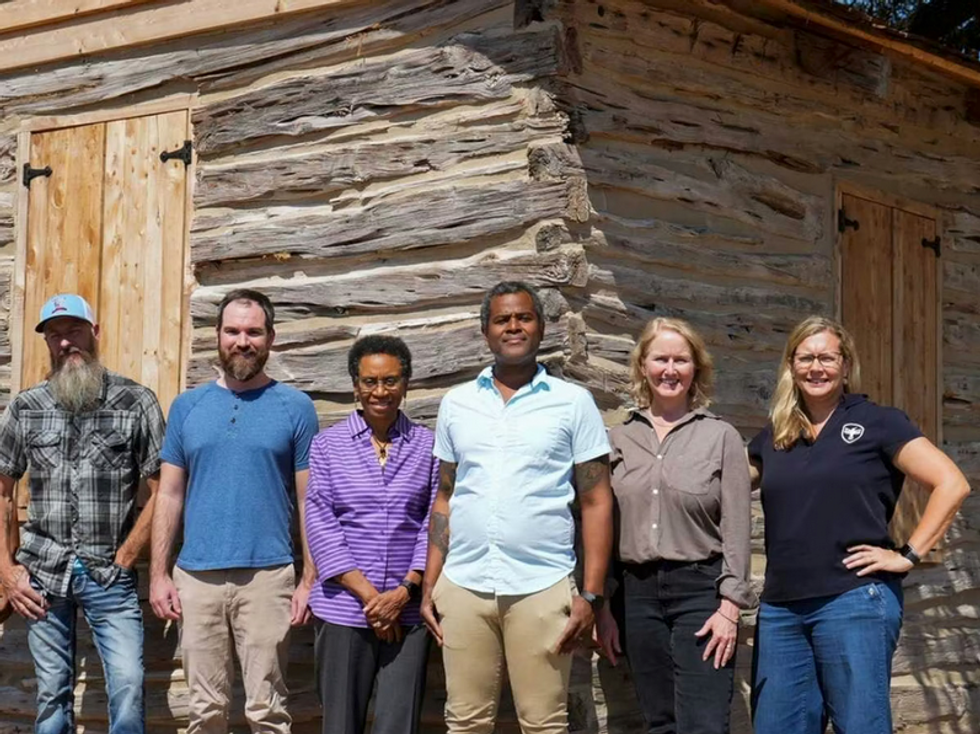A Day at the Theatre
Celluloid Closet: City Theatre Company's Little Dog emphasizes the tragedy ofHollywood
Sunday matinees are a strange time to see theater. Partly because the theater has always felt like a nighttime event, but mostly because you never know who the crowd will be at 5pm on a Sunday.
At City Theatre Company (3823 Airport Blvd.), the little theater that could and often does, the Sunday matinee crowd to see The Little Dog Laughed is modest at best. Seated in the makeshift lobby, we all patiently and silently waited our turn to pass through their decadent, curtained lounge and directly into the chilly, dark theater.
Once inside, it's easy to forget you're essentially seated inside a strip mall, though the stripped-down theater doesn't inspire much of a grand feel of going to the theater. It's really up to the actors and the audience to agree to the terms of shared imagination in this space.
After waiting nearly two years for one of my favorite playwright's most recent play to attract the attention of an Austin theater company, I was thrilled to see The City Theatre Company included Douglas Carter Beane's The Little Dog Laughed in their 2010-2011 season. This elegantly biting black comedy with its exacting commentary and razor-sharp writing is exactly what Austin audiences can appreciate about the best and brightest new plays being produced in the country.
My fervor waned a bit as I looked around at the audience assembled to take in this hilarious two-hour condemnation of Hollywood's hypocrisy. Were these 15 quiet theatregoers ready to see two dudes discovering their feelings for one another, only to have them denied by the rules and attitudes of the industries they depend on for a living?
Well, I was ready. And the three theater undergrads giggling in the back were ready. And, yeah, okay, the three gay friends in jorts and tight T-shirts sitting behind me were definitely ready. Can't speak for the family of four sitting in the front row, though...
As the City Theatre's production begins, a silver-tongued Hollywood agent named Diane introduces us to the complexities of being gay in Hollywood, alerting us to the struggles of her client, Mitchell Green, who is keeping his homosexuality a secret so that he can become a major movie star.
Diane, played by Michelle Cheney, is a genius with words and with people, and she is demonstrating her prowess from the outset. Cheney trips over a few of the more difficult phrases but exudes a confident presence throughout her narration. It would have been nice to see Diane played more ferocious and dangerous behind her sleek facade to add a dimension of true evil to her sarcasm.
Vic Trevino plays her client Mitchell Green to a fair amount of success. He is believable as a movie star, just not the "guy next door" kind of movie star that is mentioned throughout the script. He looks more like Vin Diesel with his distractingly massive abs and biceps than he does, say, Tom Hanks. And this might work if some of the lines had been edited, but he definitely looks nothing like his purported "simillar looking" love interest, Alex, played honestly and sweetly by Michah Sudduth.
The pair lacks serious chemistry or fascination with one another. Beyond the immediate obvious physical attributes of either of them, it is difficult understanding why these two are so compelled to pursue this forbidden affair, so the stakes are never high enough to make us root for them. More moments of elation and genuine attraction between the two would help counteract the mounting level of fear and regret and sadness that envelope their doomed relationship.
Nowhere is this dread more evident than in the case of Ellen, Alex's abandoned girlfriend, who watches her boyfriend leave her for another man. Keylee Koop recognizes the words she's saying are humorous, but she chooses the realistic reaction of a scorned woman over the heightened theatrical reaction of a scorned woman. Without a developed sense of her own manipulations, we never get to see how twisted her character really is either.
Overall, the hopelessness of the play's message (or perhaps the afternoon heat outside?) weighs down the momentum of the show. The added layer of WItty Gay Romp Sensibility that Douglas Carter Beane adds to each one of his shows is largely overshadeowed by the severity of the strange positions in which the characters find themselves. Every scene without Diane is mined for dramatic impact instead of highlighting the flippant, acrobatic wordplay of the script, so many of the jokes don't sound like jokes at all. The actors seem to sense this but are unable to prevent it from happening.
When intermission hit halfway through, the crowd stayed in their seats and talked quietly amongst themselves. The three gay men agreed that it was nice seeing Trevino's muscles. The three undergrads were still giggling. At the end of the second act, we applauded for the four actors nobly charging through, and then we left the theater a little darker than we were before.
Perhaps it would have been different with a larger audience. Perhaps at a different time of day. Perhaps the energy levels change each night and the direction of show gets lighter.
I wish more folks would come to see this play to consider the themes of the play, the hypocrisy of the movie industry that keeps actors in the closet, light years behind the rest of our politically-charged nation. I also wish audiences could hear the words of a brilliant playwright manipulating language and imagery like a top chef directing traffic in the kitchen. It takes a bit more imagination in this production than many theatregoers are used to, but it's still a worthwhile endeavor.
The Little Dog Laughed plays until July 3, 2001. Tickets are available at The City Theatre website.



 The Neill-Cochran House Museum's mid-19th-century slave quarters received Planning and Historic Designation grant support for restoration and historical interpretation.Photo courtesy of Preservation Austin
The Neill-Cochran House Museum's mid-19th-century slave quarters received Planning and Historic Designation grant support for restoration and historical interpretation.Photo courtesy of Preservation Austin Built around 1863, the Henry G. Madison cabin in Rosewood Park received Bricks and Mortar grant support for preservation planning work.Photo courtesy of Preservation Austin
Built around 1863, the Henry G. Madison cabin in Rosewood Park received Bricks and Mortar grant support for preservation planning work.Photo courtesy of Preservation Austin